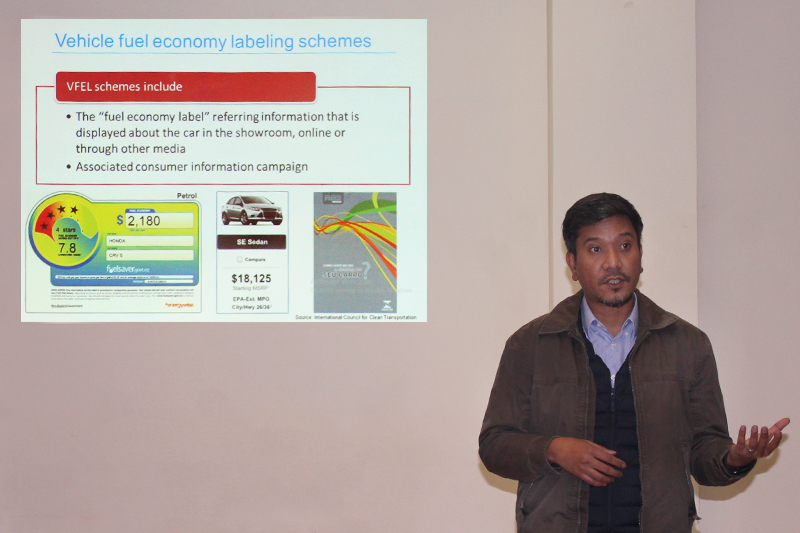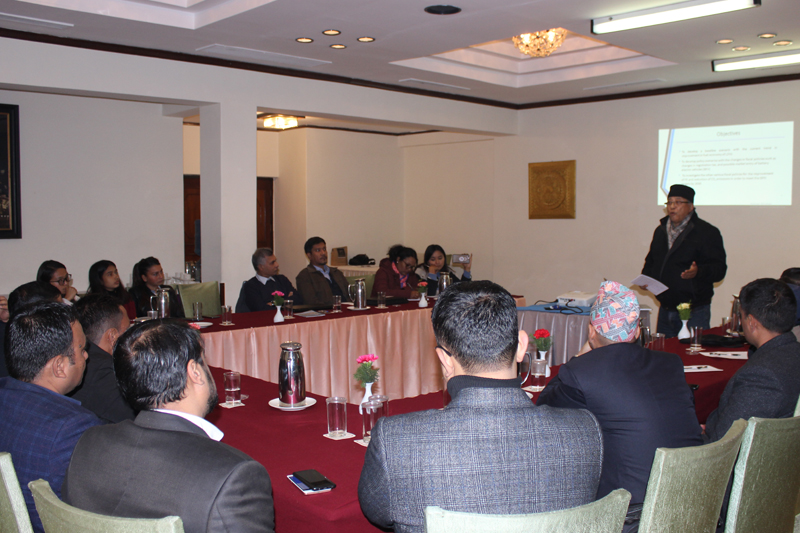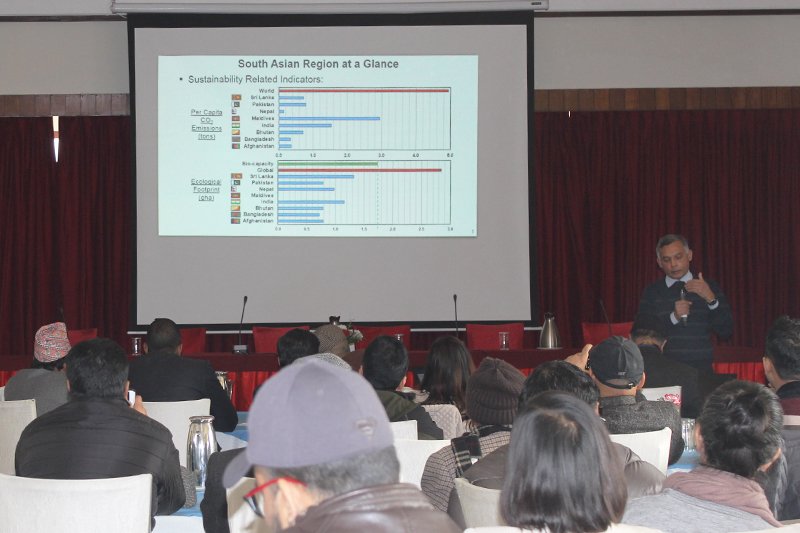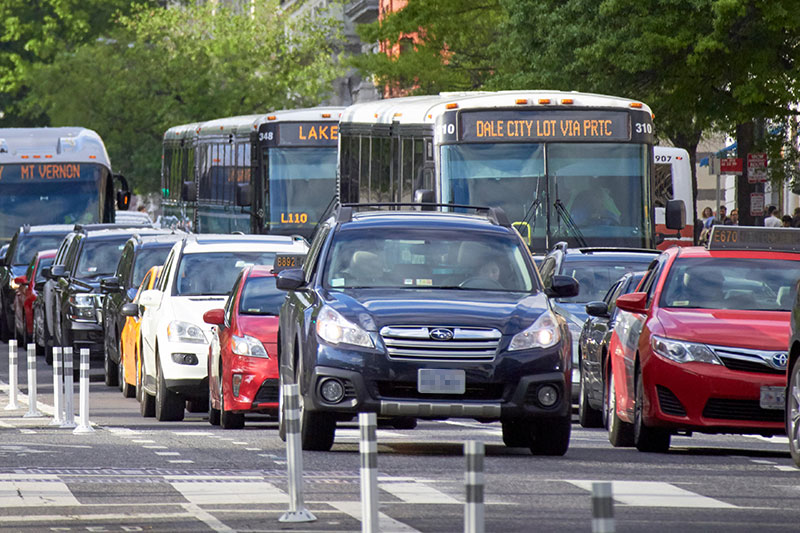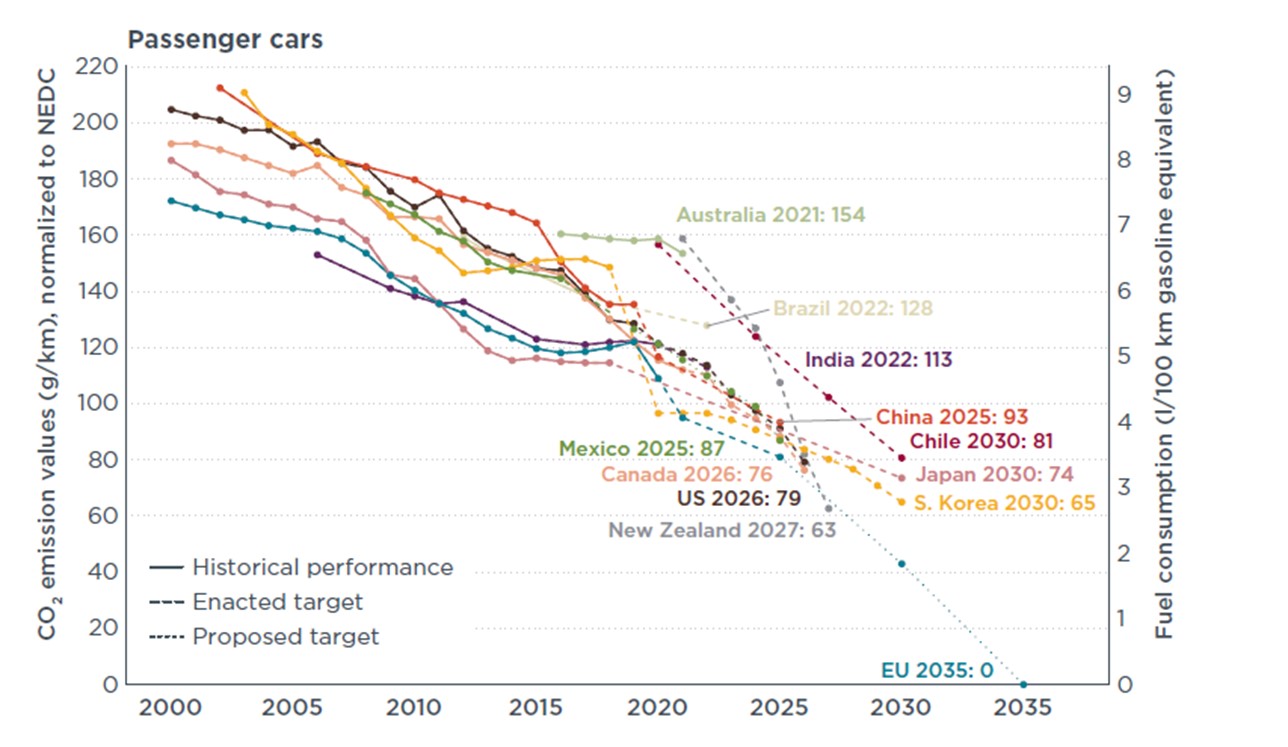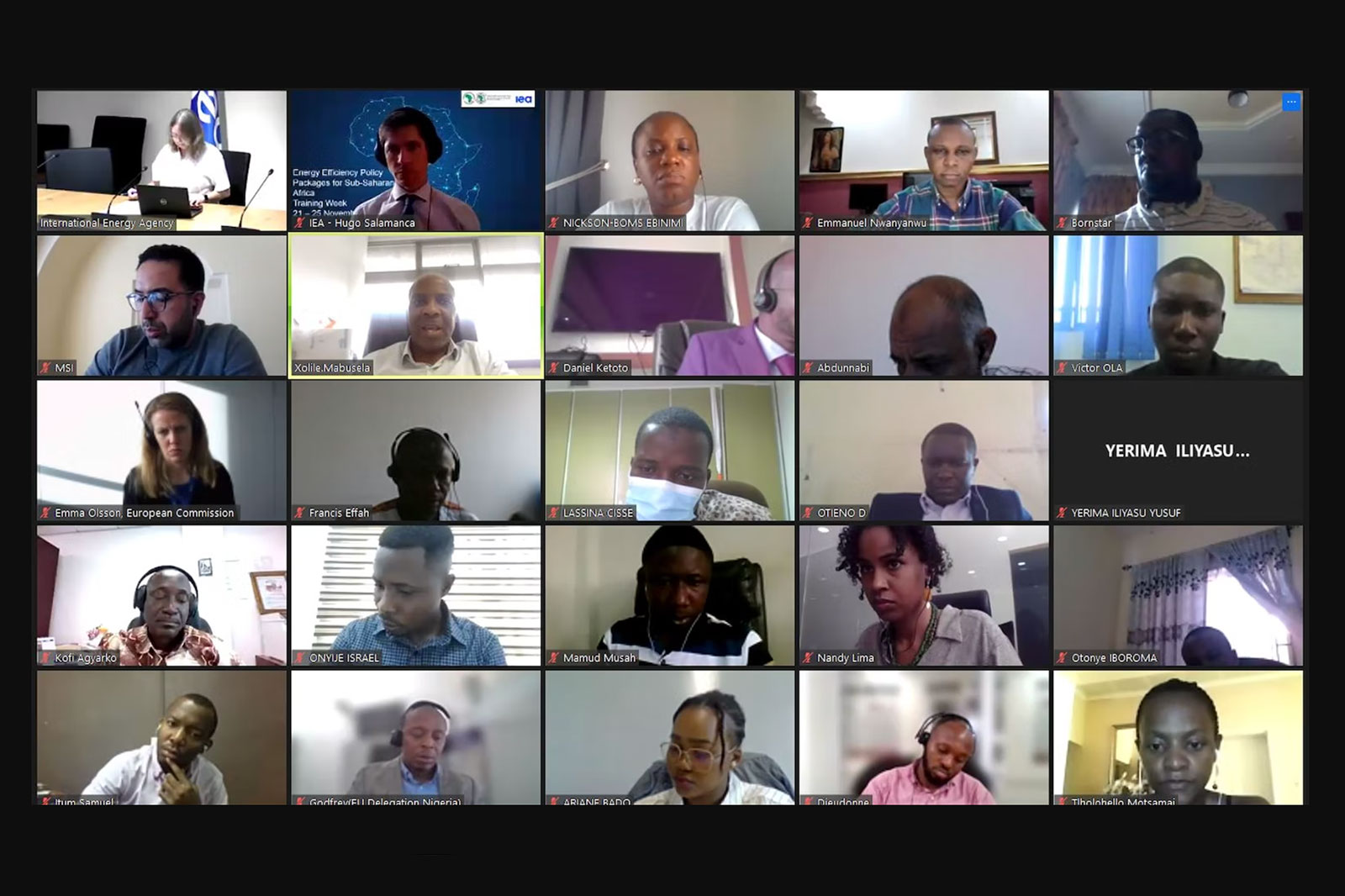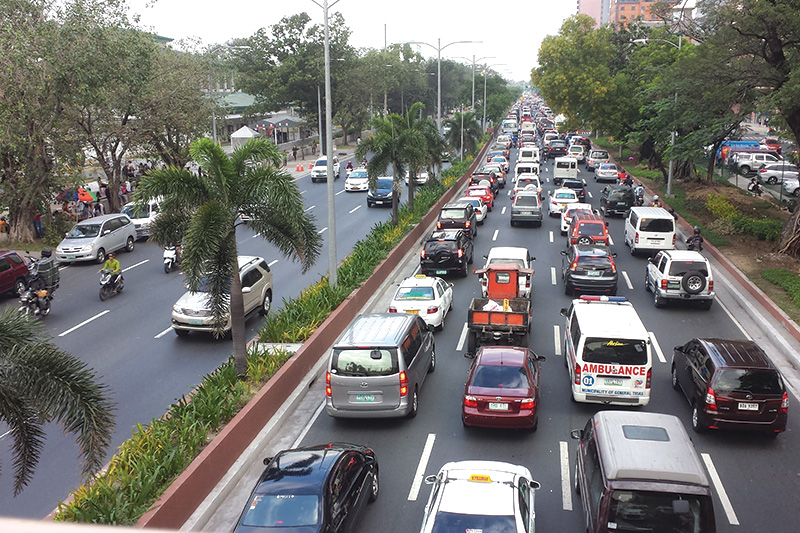Nepal Forum explores policies for more efficient vehicles
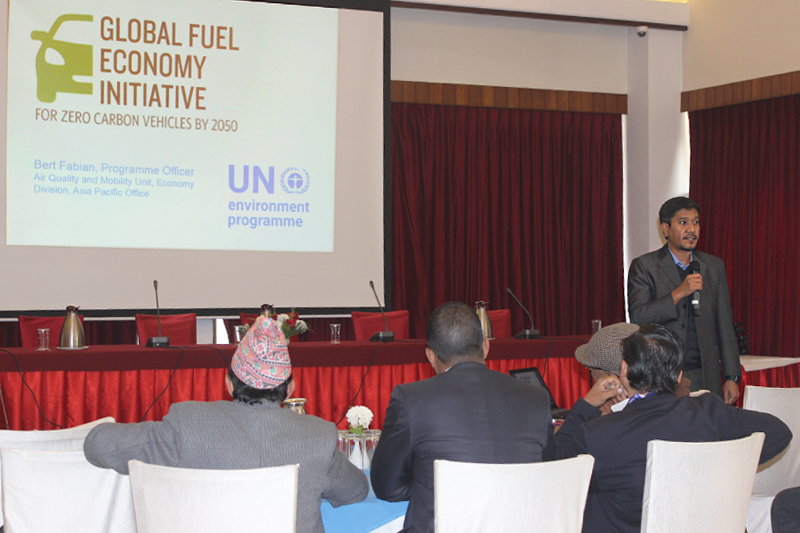
The 8th Kathmandu Sustainable Urban Mobility Forum was held on 27 January 2020, organised by Clean Energy Nepal (CEN) and Clean Air Network Nepal with support from GFEI partner UNEP (United Nations Environment Programme). The annual event, which had the theme ‘Towards efficient and zero emissions transport in Nepal’ brought together key stakeholders to initiate policy dialogue and collaboration for sustainable urban mobility and better air quality in the Kathmandu Valley. Around 55 participants from diverse backgrounds, including government agencies, non-governmental organisations, academia, transport entrepreneurs, transport/urban planners, researchers, campaigners and the media, attended.
Road transport dominates in Nepal. At an annual growth rate of 14%, vehicle registration in Nepal has increased dramatically from 0.48 million in 2005 to 3.22 million in 2018. Data from the Department of Transport Management shows that 78% of the total registered vehicles are motorcycles, 6% are cars/jeeps/vans, 4% tractors and trucks, 3% pickups, 2% buses, with the remaining being rickshaws, heavy equipment minibuses, and microbuses.
The event focused on ways to clean up these vehicles and make them more efficient and reduce carbon emissions, and included technical presentations from four experts. These included an overview of fuel economy and fiscal policy measures globally and in South Asia, as well as detailed findings of new baseline fuel economy analysis of light duty vehicles (LDVs) in Nepal, and potential fiscal policy options modelled using GFEI’s Fuel Economy Policy Implementation Tool (FEPIT). The panel discussion was then held on feasibility of various policies and plans to increase clean mobility options which mainly focused on electric vehicles in the Valley.
Bert Fabian, UNEP Programme Officer gave an introduction to vehicle fuel economy and the potential of labelling schemes to reduce emissions, including GFEI’s new goals and targets. He was followed by Dr. Thusitha Sugathapala from University of Moratuwa, Sri Lanka, who highlighted Nationally Determined Contributions commitment of Nepal aims to reduce dependency on fossil fuels by 50% by 2050 and achieve 80% electrification through renewable energy sources.
Ms. Mangleswori Dhonju, Program Coordinator, Clean Energy Nepal, shared the findings of GFEI’s initial baseline fuel economy study for Nepal. The fuel economy of LDVs performance in Nepal has improved from 6.98 liters of gasoline-equivalent per 100 kilometers (Lge/100 km) in 2005 to 5.81 Lge/100 km in 2016, indicating imports of more fuel-efficient vehicles in the country. However, since LDVs account for only 8% of total vehicles registered, with the majority (78%) of vehicles motorcycles. These are “a big challenge” said Ms. Dhonju. The average share of LDVs is 8% of total vehicle registrations, and approximately 62% of the registered LDVs are cars, followed by jeeps (16%), pickups (14%), vans (8%), and microbuses (1%) respectively. The annual car registration is increasing at the rate of 12% in Nepal, and almost 93% of them are petrol-based vehicles, with the rest diesel vehicles.
Professor Dr. Amrit Man Nakarmi, from the Centre for Energy Studies, at the Institute of Engineering highlighted a committee under MoPIT (Ministry of Physical Infrastructure and Transport) which has drafted a proposal that requires the public officials—joint secretaries and secretaries to use only electric vehicles for their daily commute. The plan is in a bid to reduce expenses from fossil fuel-run vehicles and promote EVs in the country, he said.
The meeting concluded that Nepal needs to shift to more fuel-efficient vehicles and electric vehicles not only for environmental benefits but also for financial reasons as the country spends a significant amount of budget on fossil fuel imports. As fuel economy depends solely on the type of vehicles imported and the policy imposed on it the government should therefore take action to promote more efficient and zero emission vehicles. Electric public vehicles should be promoted rather than two wheelers and import tax subsidies could potentially be set based on the efficiency of vehicles.
To read a report of the event please click here.
